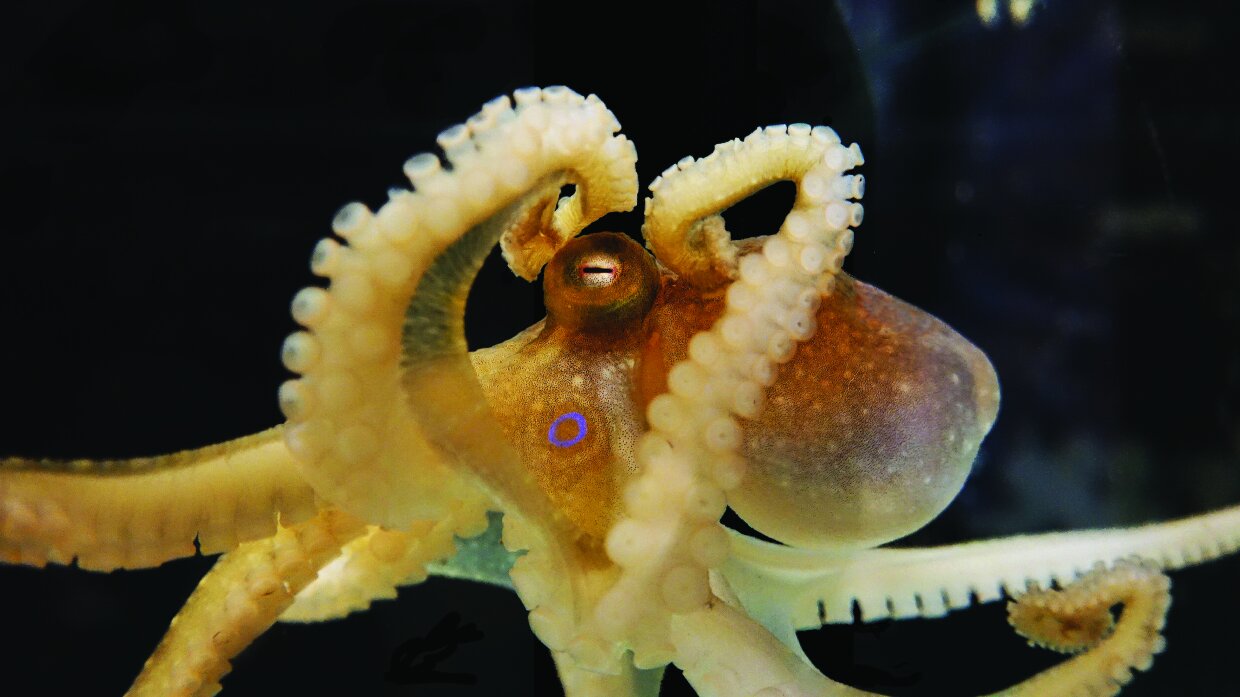Newest Posts

OCTOPUS VISION, IT’S IN THE EYE (OR SKIN) OF THE BEHOLDER
Octopus and squid are known for their sophisticated eyes, but recent studies show they may be able to sense light with their skin too.

AN ANCIENT SQUID WITH MODERN IDEAS
What if you had to wear a huge backpack all the time? Quick, agile movements would become much more difficult, and you'd probably get tired pretty fast. Maybe you would downsize the items in your pack to fit into your pockets. Or you might change your way of life and get rid of material possessions altogether. These were the issues that ancient ancestors of the squid faced when they began to free themselves from life on the seafloor 400 million years ago. Abundant fossils of preserved hard parts give clues to what these ancestors probably looked like: Imagine a modern squid curled up and stuffed into a cumbersome shell, limited to crawling on the seafloor. But with all that bulk on their backs, scientists still puzzled over how the ancient animals might have moved. Direct observation of extinct animals is impossible, but recent fossil finds of soft body parts may provide an answer.

ARE OCTOPUSES MORE HUMAN THAN WE ARE?
We’ve all heard stories of scientists turning up amazing discoveries in the most unexpected places. In fact, sometimes it seems like most of the greatest scientific discoveries happened completely by accident. This is largely because not knowing the answer makes it hard for scientists to ask the right questions. This story is no exception, because when a group of scientists (including former Stanford Ph.D. student Judit Pungor) decided to take on the mighty task of sequencing the entire genome of the California two-spot octopus, they did it hoping to learn more about these strange animals and maybe figure out which genes make them so different from other mollusks. They certainly didn’t expect to learn that octopus and humans have something very important in common.
